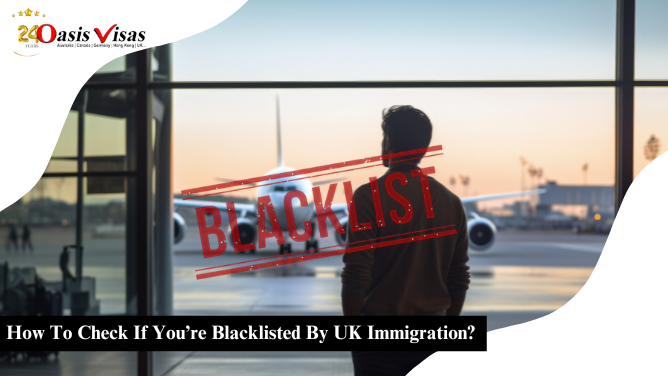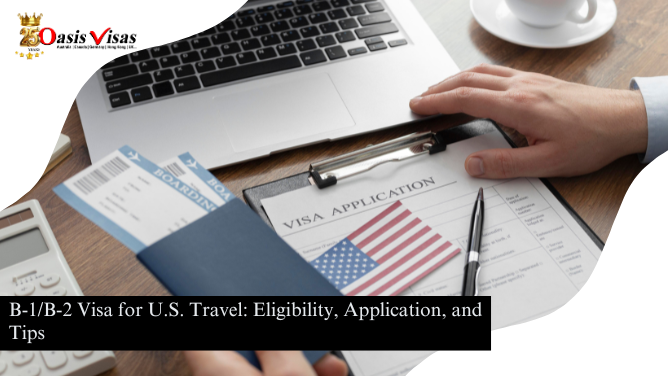
When planning a trip or applying for a visa, it’s essential to ensure your records are clear. Being blacklisted by UK Immigration can result in denied entry, refused visas, or other complications when trying to visit or settle in the UK. The idea of being on such a list can seem daunting, but it is important to understand what it means, how you might end up in this situation, and most importantly how to check if you’re blacklisted by UK Immigration.
Whether you’ve overstayed a previous visa, violated immigration laws, or faced other legal issues, this guide will help you learn the steps to confirm your status and clear up misunderstandings, so you can plan your journey confidently to live in UK..
What Does It Mean to Be Blacklisted by UK Immigration?
Being blacklisted by the UK essentially means that you have been flagged as someone who is not allowed to enter the UK. This can happen for various reasons, such as overstaying your visa, using fake documents, being deported in the past, or committing fraud during your application process. If you’re blacklisted, you will likely face difficulties applying for a visa or entering the UK, even if your intentions are now legitimate.
The UK government has strict rules in place to ensure that immigration laws are followed, and any violations can lead to a ban or restriction. For example, if you overstayed a visa by more than 30 days and left the UK voluntarily, you might face a ban for one to five years. Knowing whether you’re blacklisted by the UK can save you time, money, and stress during the application process.
How to Check If You’re Blacklisted by UK Immigration
Checking your status with UK Immigration might seem complicated, but it’s a straightforward process if you follow the right steps. Here are the methods you can use:
1. Request a Subject Access Request (SAR)
The first step to check if you’re blacklisted by UK Immigration is to file a Subject Access Request (SAR) with the UK Home Office. A SAR allows you to access the information the UK government holds about you. To make this request, you will need to fill out a form online, provide identification documents, and explain why you’re requesting the information. The Home Office will provide details about your immigration history, including any bans or blacklisting records. This is one of the most reliable ways to confirm your status.
2. Contact the UK Visa Application Center
Another way to find out if you’re blacklisted by the UK is to contact the visa application center where you submitted your application. Sometimes, the visa application center can provide information on why your visa was rejected or delayed, which may indicate if you’ve been blacklisted. Keep in mind that they might not provide full details, but it’s still a good place to start.
3. Check Your Previous Visa Rejection Letters
If you’ve had a visa refused before, check the refusal letter carefully. These letters often include reasons for rejection, such as a ban or concerns about your immigration history. If the letter mentions “deception” or “breach of immigration rules,” it’s possible that you’re blacklisted by the UK Immigration. Reviewing these letters can give you valuable clues about your status.
4. Consult with an Immigration Lawyer
An experienced immigration lawyer can be a great help in determining if you’re blacklisted by UK Immigration. Lawyers have access to legal tools and can directly communicate with the UK Home Office on your behalf. They can also guide you on how to appeal a ban or correct any errors in your immigration record.
5. Try Applying for a Visa
If you’re unsure of your status and cannot get confirmation through other means, you can try applying for a visa. If you’re blacklisted by UK Immigration, your application will likely be rejected, and the rejection letter may include information about the reason. However, keep in mind that this approach can be costly and time-consuming, especially if your visa is refused.
Common Reasons for Being Blacklisted by UK Immigration
To understand if you’re blacklisted by the UK Immigration, it’s helpful to know why people are blacklisted in the first place. Here are the most common reasons:
- Overstaying Your Visa: Staying in the UK beyond the validity of your visa without legal permission can result in a ban.
- Deception in Applications: Providing false information or fake documents during the visa process is a serious offense that can lead to blacklisting.
- Past Deportation: If you’ve been deported from the UK for any reason, you may face restrictions on reentry.
- Criminal Offenses: Committing a crime in the UK or another country can impact your eligibility to enter the UK.
- Unpaid Healthcare Bills: If you left the UK without paying for National Health Service (NHS) bills above a certain threshold, it might affect your visa applications
How to Remove Your Name from the Blacklist
If you discover that you are blacklisted by UK Immigration, don’t panic, there are ways to resolve the issue. The steps to clear your name depend on the reason for your blacklisting. For instance:
- If you overstayed your visa, wait for the ban period to expire before reapplying.
- If you were banned for providing false information, provide evidence to prove your honesty and reliability in future applications.
- If your blacklisting was an error, you can appeal the decision by providing supporting documents and working with a lawyer.
Being blacklisted by UK Immigration can disrupt your plans, but it’s not the end of the road. By following the steps outlined above, you can confirm your status and take the necessary actions to clear your record. Whether you’re planning to visit, study, or work in the UK, knowing your immigration status is the first step to ensuring a smooth journey.
If you’re unsure about where to start, contacting a legal expert or submitting a Subject Access Request to the UK Home Office can provide clarity. Always stay honest during your visa application process, as transparency is key to avoiding complications. With the right approach and persistence, you can resolve any issues and achieve your goal of visiting or settling in the UK.









